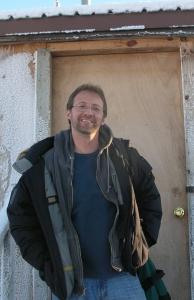Event
In this paper I examine the documentary trail of legal agreements, memoranda, correspondence, and contracts that mark the history of the “Laura Boulton Collection’s” acquisition by Columbia University as intellectual property, and the subsequent distribution and management of the associated rights by Columbia, Indiana University, and the Library of Congress. My argument is that this hidden "archive of the archive” provides the necessary context for understanding what “the archive” is. It reveals a history of appropriation (or theft) and tactical decontextualization, re-aggregation, and redefinition of the cultural property of indigenous communities as a “scientific collection.” While the ostensible motivation for this construction was scientific and scholarly, and seen at the time as the salvaged remains of dead or dying cultures, and a necessary foundation for developing a new PhD program in ethnomusicology at Columbia (now 50 years old), I show that no actor in this story was innocent of more base motivations, and in fact that every actor in the story had a covert economic interest in the fiction that the collection was a unitary object that could be owned, sold, or transferred in the name of science, ranging from the university (seeking the multi-million dollar bequest of an elderly donor) to the (eminent) faculty members involved (seeking funding and support for a new graduate program in a rising new discipline, and for other institutional purposes), to Clarence Levi, Ms. Boulton’s paramour and the elderly donor in question (seeking Ms. Boulton’s affections) to Ms. Boulton herself (seeking fame and money for herself). At no point in the course of 30 years of legal transfers and consolidations and contracts are the interests or rights of the source communities and artists for Ms. Boulton’s recordings even mentioned in these documents by the principals involved; and at numerous points, the intellectually dubious quality of Ms. Boulton’s project and Ms. Boulton herself were fully acknowledged by academic principals who knew they were participating in a fraudulent enterprise in pursuit of financial gain.
I present this paper as a form of legal “discovery” for future indigenous activists pursuing redress of this situation. In showing that Columbia had no right to buy recordings Ms. Boulton had no right to sell, with no consideration of the artists and communities who provided the materials on the recordings, I will also consider the comprehensive and coherent indigenous legal frameworks whose sovereignty was abnegated in this process and which were arguably in effect in the contexts in which Ms. Boulton often recorded, and the failure of US federal copyright statutes of 1909 and 1972 to apply in any way to the recordings in question (all made between the dates of those two laws) despite the reliance of the involved institutions and individuals on the premise that Ms. Boulton’s recordings could be her intellectual property under existing intellectual property law (a premise not questioned until lawyers for the Library of Congress gently interrogated it in 1990). Ultimately, my point is that Boulton’s collection represents an extreme version of a condition that affects many 20th century archives of field recordings (and a vast amount of 20th century popular music, albeit without the veneer of scientific legitimacy), which is to say, a condition of illegality in the service of multiple forms of financial and political gain, disguised as a non-profit scientific enterprise. My conclusion is that such archives are “fruit of the poison tree:” they represent a significant legal liability for the institutions that possess them, and a moral liability for ethnomusicology as a discipline.
Bio:
Aaron Fox is Associate Professor of Music and Director of the Center for Ethnomusicology at Columbia University. He is the author ofReal Country: Music and Language in Working-Class Culture (Duke UP 2004). His recent work deals with repatriating indigenous musical recordings and the cultural property rights of indigenous communities to reclaim and set terms for the use of archives containing their patrimony. His recent field research and community-based cultural reclamation work (in collaboration with cultural geographer Prof. Chie Sakakibara of Oberlin College) with the Iñupiat communities of Alaska’s North Slope has been supported by the National Science Foundation. He has also worked with Ponca, Ts’msyen, Hopi, Navajo, and Mojave activists and scholars on related projects.
